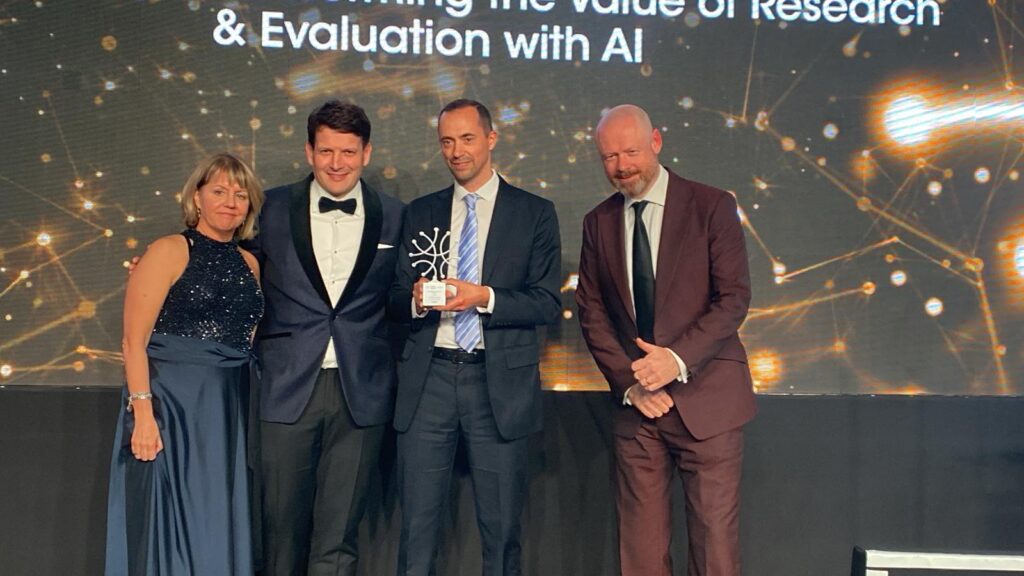For years, the British Council’s evaluation work generated vast stores of valuable content: over 2 million words of text, tables, images, and charts, covering programme outcomes worldwide. But this knowledge was effectively locked away in siloed reports, scattered across shared drives. Staff, trustees, and sponsors who needed quick answers often had to commission time-consuming manual reviews.
The challenge was twofold: unlock the value of this evaluation evidence and democratise access so that decision-making (from global programme leaders to senior executives) could be guided by timely, credible insights. Traditional search tools could not bridge the gap; something bolder was required.
“Bringing access to some of the most important documents in a way that is efficient and accurate in a legacy organisation is a challenge, and The British Council has shown how it can be done.” – Judges’ comments
Evolving Eva
The British Council’s Data, Evidence and Performance team responded with Eva, a hybrid Retrieval-Augmented Generation (RAG)-powered chatbot built on Microsoft GraphRAG. Eva combines traditional retrieval methods with an embedded knowledge graph to connect the dots across documents, surfacing not only facts but also implicit insights.
The app allows staff to ask open-ended questions, such as “What themes emerge most often in British Council education programmes globally?”, and receive context-rich answers, complete with citations.
Designed with an intuitive interface, Eva is accessible to both technical and non-technical colleagues. Users can refine queries, download responses, and verify references directly. Already adopted by over 200 core users across the organisation, it has empowered everyone from researchers to trustees to interrogate evaluation evidence in seconds.
Eva’s impact has been immediate and measurable:
- Time savings: Tasks that once required two weeks of manual analysis can now be completed in seconds. One senior manager reported saving £7,000 worth of work on a single project for the FCDO. At scale, these efficiencies add up to six-figure annual cost savings.
- Cultural transformation: Staff who once felt daunted by data science now routinely use Eva to support planning and reporting. The app has sparked broader data upskilling across the organisation, with users developing confidence in interpreting results and checking citations.
- Transparency and trust: By providing cited answers, Eva supports the British Council’s duty to evidence impact to donors, trustees, and the public. It ensures consistency, accountability, and credibility in how evaluation data informs decisions.
A Model for Responsible AI
Judges highlighted Eva as a technical and cultural breakthrough. The app has embedded data and AI at the heart of organisational practice, ensuring that evaluations drive real-world decision-making rather than languishing on shelves.
With a roadmap to open-source the model for wider public-sector and NGO use, and interest already expressed by government departments, Eva could become a template for responsible AI adoption well beyond the British Council.





